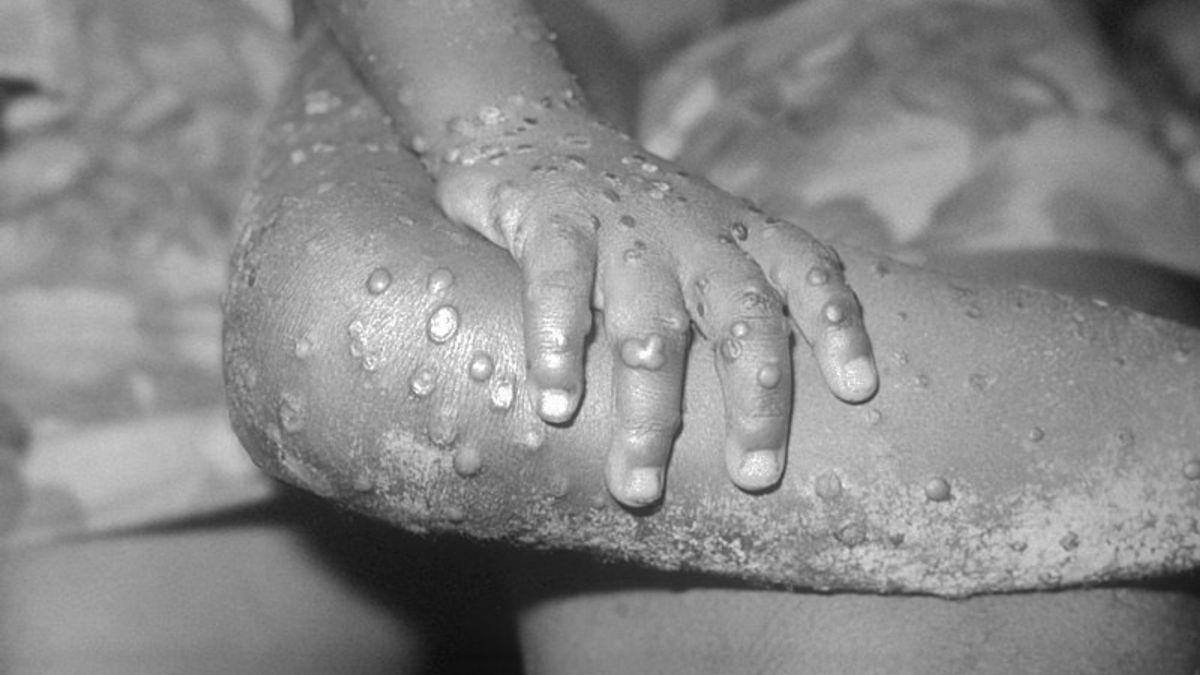JAKARTA – Today's disease is getting weirder. After two years of Indonesia and the whole world being ravaged by the COVID-19 pandemic, a new acute hepatitis emerged. This disease that attacks children from infancy to adolescence is commonly called Mysterious Acute Hepatitis. Eh, now comes the Monkey Pox which is feared to be a plague.
The Mysterious Acute Hepatitis has not been completed yet, the Monkeypox Virus or in Indonesia known as Monkeypox appears. As a result of the uproar about Monkey Smallpox, Saudi Arabia, which had just opened its territory for Umrah and Hajj, had to issue a ban for its citizens to travel to 16 countries, one of which was Indonesia!
Quoted from the Saudi Gazette on Monday, May 23, 2022, the 16 countries that the Government of Saudi Arabia has prohibited citizens from visiting are: Afghanistan, Armenia, Belarus, Ethiopia, Indonesia, India, Iran, Lebanon, Libya, Democratic Republic of the Congo, Somalia, Syria. , Turkey, Venezuela, Vietnam and Yemen.

Monkeypox, which is a disease from Africa, is known to have spread from Europe to America this May. The World Health Organization (WHO) felt the need to hold an emergency meeting at the Institute's headquarters in Geneva, Switzerland on Friday, May 20. WHO has received reports of finding 100 cases of monkeypox in Europe.
WHO said that as of Saturday, May 21, 12 countries had reported suspected and positive cases of monkeypox. The organization promised to immediately issue guidelines and recommendations on how to prevent the spread of monkeypox to several countries.
"Available information indicates that human-to-human transmission occurs among people who have close physical contact with symptomatic cases," the WHO said in a statement.
Originally Only Infected AnimalsThe first cases of monkeypox were first discovered in 1958 by Danish virologist Preben Christian Alexander von Magnus. Von Magnus discovered a type of smallpox that attacked a group of long-tailed monkeys that he used as a research medium in the laboratory. Monkeypox virus is known to be endemic to monkeys that live in Central and West Africa.
After 28 years of discovery, it was discovered that Monkeypox can infect humans. In a period of nine years, 1970-1979, there were 50 cases of transmission of this virus to humans. Quoted from the National Library of Medicine, the 50 cases of monkeypox transmission to humans as many as 38 cases occurred in Zaire, now known as the Democratic Republic of the Congo. The rest are in Liberia, Nigeria, Ivory Coast and Sierra Leone.

Cases of monkeypox transmission to humans jumped sharply in 1986, when 400 cases were recorded in Zaire. The death rate from this disease ranges from 10-17 percent, with patients who die are children under the age of 10 years.
Outbreaks of Monkeypox outside Africa were first recorded in the United States in 2003. A number of states in the middle to the east coast of the United States such as Wisconsin, Illinois, Indiana, and New Jersey reported cases of monkeypox outbreaks. The spread of this virus in the land of Uncle Sam is suspected to have originated from the Gambian giant rat, which was currently trending as a pet for the United States.
The Virus Has MutatedThe Monkeypox Outbreak in the United States in 2003 was successfully contained, but that does not guarantee that the disease will not reappear. On July 17, 2021, a new case of monkeypox that attacked Americans was found in Texas. Fuss, the variant that attacks mentioned is also new. Monkeypox virus mutation has occurred.
"While rare, this case is no cause for alarm and we hope it will not pose a threat to the general public," Dallas County Judge Clay Jenkins said.
This year the first monkeypox case was discovered in the UK on 7 May. The contagion occurred in a British citizen who had just returned from Nigeria. For the record, Nigeria in 2017 experienced a major outbreak of Monkeypox.

"It is important to underline that the Monkeypox virus does not spread easily among humans and the overall risk to the general public is very small," said United Kingdom Health Security Agency (UKHSA) clinical and infection director Colin Brown.
Brown seems to be trying not to cause panic among Britons, given that the country has not been free from the trauma of the COVID-19 pandemic. In fact, Monkeypox has now spread to European countries other than England, namely the Netherlands, Belgium, Italy, Germany, Portugal, France, Spain, and Sweden.
This disease has even crossed the ocean, spreading to Australia, Canada, and the United States. Monkeypox cases are also reported to have been detected in Singapore.
How about in Indonesia?In Indonesia, until now there have been no reported cases of monkeypox transmission among the community. The Ministry of Health through its spokesman Mohammad Syahril said that in Indonesia there had not been any cases of Monkeypox.
"Currently there are no cases in Indonesia," said Syahril, as quoted by Tribunnews on May 21.
The Indonesian Doctors Association (IDI) has also not issued a statement regarding the spread of Monkeypox in Indonesia.
"Currently there has been no official statement from the Central IDI. In the near future, we through the Central IDI Tropical Infection Section will issue an official statement about Monkeypox," said IDI Central Public Relations, Elizabeth to VOI on Monday 23 May.
After being hit hard by COVID-19, it is natural for people to be wary of the presence of Monkey Smallpox. Staying compliant with health protocols is one of the keys to avoiding being exposed to Monkeypox. Although WHO states there is already a vaccine for Monkeypox, avoiding transmission is much better.
The English, Chinese, Japanese, Arabic, and French versions are automatically generated by the AI. So there may still be inaccuracies in translating, please always see Indonesian as our main language. (system supported by DigitalSiber.id)













